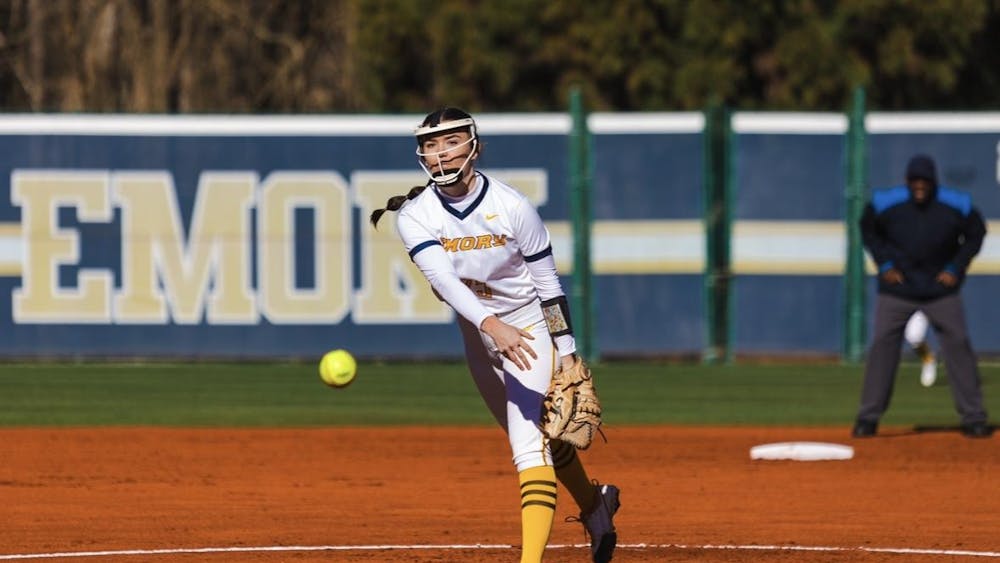On Feb. 27, during a practically meaningless game between the first-seed Los Angeles Lakers and the last-place Golden State Warriors, an analyst on TNT’s “Inside the NBA” and retired NBA legend Charles Barkley opened the halftime show with a series of jokes slandering Warriors forward Draymond Green. Green was ejected midway through the second quarter after excessively protesting a series of foul calls against him.
“He had his normal triple-single,” Barkley said. “[Green] talks all that stuff when he got them other boys with him. Now, when he has to get out there and fight himself, he just doesn't want to play.”
Even though this level of disrespect on national television between two highly distinguished members of the NBA community should be a shocking development, it was the least bit surprising.
Green versus Barkeley is nothing new. In fact, Green versus just about anyone is nothing new.
From amassing more technical fouls than any other player in the last five years, to being accused of intentionally kicking opponents in the groin, to being a centerpiece in the controversial recruitment of former Warrior Kevin Durant, Green has built up a well-deserved reputation of being a troublemaker who is despised by fans of rival teams.
However, Barkley’s comments are noteworthy because they are indicative of a growing shift in the narrative surrounding Green. Green’s antics are no longer the primary source of his controversy: an increasing number of NBA community members are questioning whether the three-time All-Star is actually deserving of his accolades.
So, why do opinions on such a veteran player vary so greatly?
For starters, conventional statistics allude more to Green’s weaknesses than they do his strengths. He is a mediocre scorer, and while plenty of NBA players have made their careers from helping their teams in ways other than scoring, it’s generally expected of an All-Star to lead their team in scoring.
In the 2017-18 season — Green’s last year as an All-Star player — the average points per game (ppg) tally among the All-Stars was 23. Green stuck out like a sore thumb with an 11 ppg average.
He doesn’t have immensely impressive numbers in other major statistical areas either, typically averaging about seven assists and eight rebounds per game.
This is what Barkley’s “normal triple-single” refers to. Green rarely reaches double digits in any statistical category.
In a league where a player’s averaged ppg, assists and rebounds are so commonly used in determining talent, it’s understandable why Green appears to be no more than an average player at first glance.
But when it comes to the defensive end of the floor, Green is far from average. Few defenders in NBA history have his combination of size, quickness, intelligence and communication skills. His unique skill set enables him to guard every position, be a remarkable help defender and be the leader of a defense that has revolutionized basketball. He has shown the ability to completely take over a game defensively and consistently finish as one of the top vote-getters for Defensive Player of the Year.
If defense is truly one half of the game of basketball, Green deserves just as much credit for his defensive prowess as the rest of the All-Stars receive for their scoring abilities. Yet, defense is harder to measure and simplify into numerical values without using the advanced analytics that many fans and media personalities refuse to learn about. Simple defensive statistics like blocks and steals only deal with a small fraction of defensive outcomes and aren't effective when it comes to holistically evaluating defenders. So, instead of using these analytics to explore how defenders like Green are underrated, the media is much quicker to overrate scorers like Trae Young of the Atlanta Hawks and Devin Booker of the Phoenix Suns even if they are among the league’s worst defenders.
Green is objectively a great defender, but the extent to which he is valuable offensively is debatable. While he doesn’t score often, he has proven more than capable of facilitating the scoring of other players through a well-above-average ability to pass and set screens.
However, he has benefited from playing with the best shooting trio ever assembled: Stephen Curry, Durant and Klay Thompson. Green and the trio produced five straight finals appearances and won three championships together. Doubters like Barkley, though, question if he would be as effective offensively without “them other boys.”
These concerns are especially prevalent as Durant left to play for the Brooklyn Nets and Curry and Thompson both sustained long-term injuries. Green was left to play the majority of the 2019-20 season without his usual companions. It hasn’t gone well. The Warriors had the worst record in basketball before the postponement of the NBA’s season due to the novel coronavirus. The shots that Green had once created for the trio to knockdown, are now being created for players that are having historically poor shooting seasons, like rookies Ky Bowman and Jordan Poole who shot a combined 28.5% from the three-point line.
Green is clearly limited offensively by the talent around him, but that isn’t necessarily a knock on his value. While he won’t be carrying a subpar team void of scoring talent to the playoffs anytime soon, teams with talented scorers still need players to excel at the dirty work without getting in the way of the scorers.
That’s the reason why the Warriors were able to create one of the greatest and infallible teams of all time. Green can use his unconventional skill set to make up for his weaknesses in scoring, while the scorers make up for Green’s inability to score. The result is a team that thrives on symbiotic relationships, and it all starts with one star player that excels at the overlooked aspects of the game.
Even though Green won’t be flooding the box score with high-scoring performances like the other All-Stars, it doesn’t make him any less special. He’s an all-time great on the defensive end that helps his more offensive-minded teammates thrive. Even if analysts aren't fond of him personally, established analysts like Barkley need to do a better job of crediting Green’s value.






